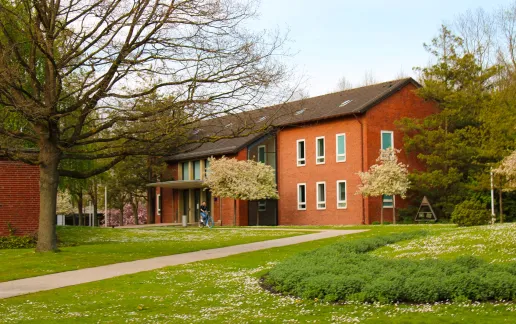You learned, you grew, you experienced new things in life, but who said there is no room left for more? As a second-year student, rest assured that this year is going to run way smoother than the last. You probably got used to the new way of life that was introduced to you in your first year of university, and even if you’re still not fully comfortable, you are not alone. Your second year in university comes with its own unique dynamics. You will realize at some point that you have more responsibilities to tackle, however having a strong foundation that was gained from your first year, will help you smoothly build on all the progress you have made regarding your daily life and responsibilities in your second year. Here are a few tips on how to survive the second year at university and how to avoid some issues that could possibly happen throughout the year.

Academic
The study habits you developed in your first year provide a strong foundation for your second year, especially now that your courses are more specialized and aligned with your major. This is an opportunity for you to immerse yourself in the subjects you feel most passionate about and comfortable with. These subjects will open a door for you to explore career-relevant skills you will need for your future, so take advantage of that. You can dive deeper into your topics of study using major-specific tutoring if you feel like you need an extra hand, online study guides that you can find, or are given to you by your professors, and specialized research groups to broaden your knowledge. Keep in mind that your professors and academic advisors are always there to help you, so seek their guidance during their office hours or ask to schedule a meeting. Your peers in your major are also with you, so sharing the experience of tackling complex concepts and projects together will boost your confidence and your grades as well!

Residential
Now that you’ve lived on-campus for a year, got over the challenges of having a roommate in a small space, or being alone for the first time in your life, your second year living abroad might be a bit different. If you end up getting a room on campus, you know the drill. However, off-campus housing would be your top choice for accommodation, therefore it is recommended you start looking for a place to stay within close proximity to campus (if it's preferable), roommates to live with to eliminate the costs of living, and a new place that feels like home. Consider your preferences of shared houses to have a social atmosphere or studio apartments for more privacy. Aligning your budget with your lifestyle is also of utmost importance. Ideally, start your housing search as early as you can, during the summer or even the end of your first year. If you end up living with roommates, remember to openly communicate with them, setting expectations to avoid conflicts. Make your living space personalized and comfortable to maintain a motivating environment and feel like you're at home.
Financial
Your finances in your second year of university may look different, especially if you're living off-campus. It's important to track your expenses consistently to ensure you have enough money to last the semester, depending on your income and spending habits. Prioritize essentials like rent and groceries to maintain a stable and healthy lifestyle. Since your second year brings more work opportunities, both on and off-campus, take advantage of them to earn extra income—whether it’s your primary source of financial support or just a supplement. A little extra money never hurts!

Social
Meeting new people from over 120 nations around the world may feel less overwhelming in your second year, as you’ve most likely already formed friendships and built a sense of belonging. Diversity on campus will continue to create a home away from home, and it’s still an opportunity to broaden your horizons and deepen your understanding of different cultures. If you feel like you didn’t make as many connections as you hoped in your first year, there is nothing to worry about. There are always new people to meet on campus, whether in classes, clubs, or events. Remember there are always students coming to meet new people as well, so be inviting and open to conversation. If you’re living off-campus with friends, cherish those relationships by spending quality time together and supporting one another. If you’re living alone, make it a point to get out and socialize with others, whether it’s attending campus activities, joining clubs, or simply exploring places in the city. Maintaining a good social life not only provides a break from your academics but also cultivates a strong sense of community that enhances your university experience.
Health and Well-being
You might feel a little bit more grown up in your second year, maybe even more stressed out due to all the responsibilities that start to add up, especially if you move off-campus. You have to make sure to maintain balance between paying rent, getting groceries, and going to campus in time for your lectures or social activities. This can all feel overwhelming because you might have found it easier last year, therefore caring for yourself and health, mental or physical is imperative. Without feeling good, everything else can become so much harder to handle. Take the time to check in with yourself, whether that is finding small ways to reduce stress, eating meals that will keep you energized throughout the day, or making sleep a priority (even when it feels impossible). You will also have an Off-Campus Student Support Officer and university health services still available if you need any support. And sometimes, a good workout can work wonders. It doesn't even have to be fancy: a walk, a quick stretch, or dancing around your room can help you reset.
Conclusion
Your second year of university is a special chapter of your life made up of both familiarity and new arising challenges to tackle. Your first year has taught you a lot, and now is the time to expand on those insights. With additional responsibilities on your plate like housing, finances, and specialized classes, things may seem a little more demanding, but keep in mind that you're not starting from scratch. You have the resilience, the foundation, and the capacity to succeed this year. You have everything it takes to make this year memorable.


